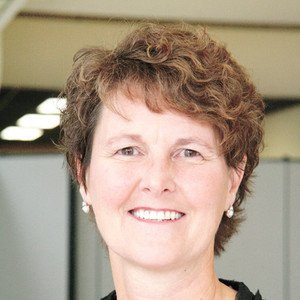It’s All About Education: A Recipe for Disaster - Common Core Standards for Kindergarten
Wednesday, January 28, 2015
On January 13th, Defending the Early Years and the Alliance for Childhood released a report titled Reading Instruction in Kindergarten: Little to Gain and Much to Lose outlining the potentially damaging effects of the Common Core standards for kindergarten students. Citing numerous research studies published over the past several years, the report makes several key recommendations, most notably that we immediately drop the Common Core kindergarten standards.
Since the 1980s, there has been increasing emphasis on academic skills in kindergarten, causing a shift from play-based classrooms to more direct instruction. No Child Left Behind, the Race to the Top, and the focus on Common Core standards have exacerbated this problem. And it is a problem: the emphasis on academic skills for our youngest students ignores years of research on how young children learn best. Many studies show that students who attend play-based preschools and kindergartens perform better on cognitive and social-emotional developmental scales than their peers who attend more academic programs. In addition, exposing children to the pressures of a highly academic environment at a very young age can have lasting harmful effects. The HighScope Preschool Curriculum Comparison Study found that, by age 15, students who attended direct instruction preschools were more than twice as likely to have exhibited delinquent behavior; by age 23, students who attended play-based preschools were significantly less likely to have required special education classes or to have felony arrest records.
There is no evidence that children who read at an early age have any advantage over children who learn to read one, two, or even three years later. A doctoral thesis written by Professor Sebastien Suggate found that, by fourth grade, there is no difference in the reading levels of students taught to read in kindergarten vs. those taught to read in first grade. Dr. Marcy Guddemi, Executive Director of the Gesell Institute of Child Development, stated in a press release, “Our latest research shows that children are not reaching developmental milestones any faster than previous generations of children. Respecting the variations of development from child to child is more important than ever.“ We know that some children learn to walk earlier than others, and that most children say their first words sometime from eight months to fifteen months of age. We see some toddlers who are potty-trained by age two, and others who still have accidents at age four. We can accept that these developmental differences will have no lasting impact on a child’s future success in school or in life. Why, then, is it so hard to accept that children also learn to read at different ages, depending on each one’s unique developmental trajectory?
GET THE LATEST BREAKING NEWS HERE -- SIGN UP FOR GOLOCAL FREE DAILY EBLASTA good early childhood teacher crafts an environment in which all of her students acquire experiences which allow them to thrive and develop optimally. She carefully observes her students, ensuring that they participate in play that supports their cognitive, physical, and social-emotional development. Within the classroom, there are activity centers that offer hands-on experiences with blocks, art materials, and imaginative play. It is a print-rich environment, with letters and words displayed in ways that help students to understand their meanings. The teacher shares numerous stories and books with the students so that they learn the joys of reading; these stories, combined with field trips and science experiments and other learning opportunities, give students the background knowledge and the skills to be able to construct meaning for themselves as they encounter challenging new concepts throughout their lives.
This stands in contrast to the Common Core standards for kindergarten, which require, among the ninety (90) specified standards, that kindergarten students do the following: recognize and name all upper- and lowercase letters of the alphabet; read emergent-reader texts with purpose and understanding; associate the long and short sounds with common spellings (graphemes) for the five major vowels; and participate in shared research and writing projects. Given this tiny sampling of standards for our five-year-olds, is it any wonder that many educators, parents, and the students themselves are balking at the expectations being placed on them?
Finally, Reading Instruction in Kindergarten: Little to Gain and Much to Lose raises an important assertion: that the adoption of the Common Core standards wrongly ignores the overwhelming research we have demonstrating that socioeconomic status is by far the strongest predictor of academic achievement in the United States. Having Common Core standards will not ensure that all students will suddenly be able to meet these standards; we still must address the impact of poverty on child development and the inequitable access to quality early childhood experiences. Thus, the authors of the report also recommend that, in addition to immediately suspending the kindergarten Common Core standards, we also:
- Invest in high quality, long-term research on how best to help children become fluent readers by fourth grade;
- Convene a task force of early childhood educators to recommend developmentally appropriate and culturally sensitive learning guidelines;
- End high-stakes testing with children in Kindergarten through third grade, as well as the use of test scores to evaluate teachers and schools; and
- Ensure that all students have experienced, highly trained early childhood educators.
Author and child development professor Nancy Carlsson-Paige hopes that this report will “lead people to understand that the Common Core standards are not grounded in research or child development theory.” She believes that as a nation, we must address the underlying causes of the achievement gap, because even the most appropriate academic standards will never alleviate issues of inequality.
Lauri Lee is an independent consultant with over twenty years of experience in both public and private education, with learners from infants through adults. With experience in marketing, communications, social media, development, admissions, and technology, she is able to synthesize many of the issues facing our educational system today. She lives in Providence with her family, a big dog, and a small cat. She encourages you to connect with her on Twitter @fridovichlee or to contact her directly at [email protected].
Related Slideshow: RI Experts on the Biggest Issues Facing Public Education
On Friday November 22, the Hassenfeld Institute for Public Leadership at Bryant University, the Latino Policy Institute of Roger Williams University, the Rhode Island Association of School Committees, the Providence Student Union, and RI-CAN: Rhode Island Campaign for Achievement Now will host Rhode Island leaders in the public and nonprofit sectors for a symposium on "the civil rights issue of the 21st century, adequacy and equity and the State of Education in Rhode Island."
Weighing in on the the "three biggest factors" facing education in the state today are symposium participatnts Gary Sasse, Founding Director of the Hassenfeld Institute for Leadership; Christine Lopes Metcalfe, Executive Director of RI-CAN; Anna Cano-Morales, Chairwoman of the Board of Trustees, Central Falls Public Schools and Director, Latino Policy Institute at Roger Williams University; Tim Duffy, Executive Director, RI Association of School Committees; and Deborah Cylke, Superintendent of Pawtucket Public Schools.
Related Articles
- It’s All About Education: Could Text Messaging Make Us Better Parents?
- It’s All About Education: Is it Time for a Slow Education Movement?
- It’s All About Education: The Connection Between Housing and Achievement
- It’s All About Education: Chronic Absenteeism’s Effect on Learning
- It’s All About Education: Student Engagement Leads to Success
- It’s All About Education: Making the Dream a Reality
- It’s All About Education: It’s About Time
- It’s All About Education: Do You Trust Your Child’s Teacher?
- It’s All About Education: Pediatricians’ Group Finally Jumps on Early Literacy Bandwagon
- It’s All About Education: Can Recess Help Children Be More Successful?
- It’s All About Education: Playing in the Woods Can Help Kids Reach Their Full Potential
- It’s All About Education: What if College Isn’t Necessary
- It’s All About Education: The Rise in Kindergarten Readiness Testing
- It’s All About Education: Some of Education’s Best Ideas from 2014
- It’s All About Education: Social Promotion is Not the Problem
- It’s All About Education: Schools that Harness the Power of Nature
- It’s All About Education: The High Cost of Higher Education
- It’s All About Education: How Can We Ensure that Kids Have Great Teachers?
- It’s All About Education: Why Common Core Won’t Help Our Children
- It’s All About Education: Will Charter Schools Fix Our Public School System?
- It’s All About Education: Free College Tuition - Why Just Community College?
- It’s All About Education: What is an “Excellent” Teacher, Anyway?
- It’s All About Education: Can Universal Preschool Close the Achievement Gap?








